Previous Entries
I - Introduction
A. What is Morphology?
Morphology is the branch of biology that deals with the form and structure of organisms without consideration of function. It is the study of the form and structure of an organism, or one of its parts.
B. Cataloguing the Quiet War
The following is a compilation of myself and Dr. S’s collected body of work, categorized by subtype and form. This study will purely focus on the morphology of this self-assembling weapons platform. The various components and subtypes will be explored, as well as diagnostic methodologies used to group these objects. All of the samples seen here have previously been analyzed in the articles linked above, and detailed explanations of their collection and processing can be found in said articles.
In The Mass Poisoning of America: A Case Study, I extensively cover the control samples that we compared these samples against. There is simply not a known biological process that can explain the aggregation, self-assembly, and uniform patterns displayed by the structures we have catalogued. Since we continue to find these in the vast majority of the patients we test, necessity requires a more robust diagnostic paradigm in order to diagnose this parasitical infestation.
II - Nanotech: Analysis & Morphology
A. Healthy Blood Samples (Light and Darkfield Microscopy)
Healthy blood is characterized by a well-balanced composition of red and white blood cells, platelets, and clear plasma. Under microscopic examination, the cells display regular shapes and counts, with minimal abnormalities. Optimal viscosity ensures smooth circulation, contributing to the overall functionality of the cardiovascular system and promoting general health.

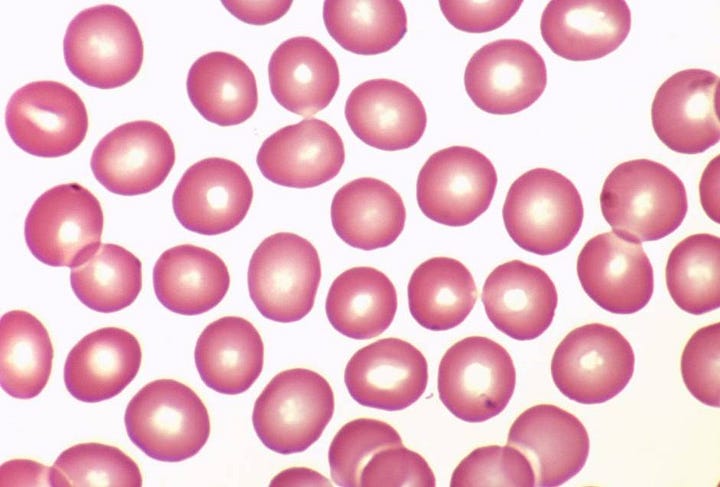
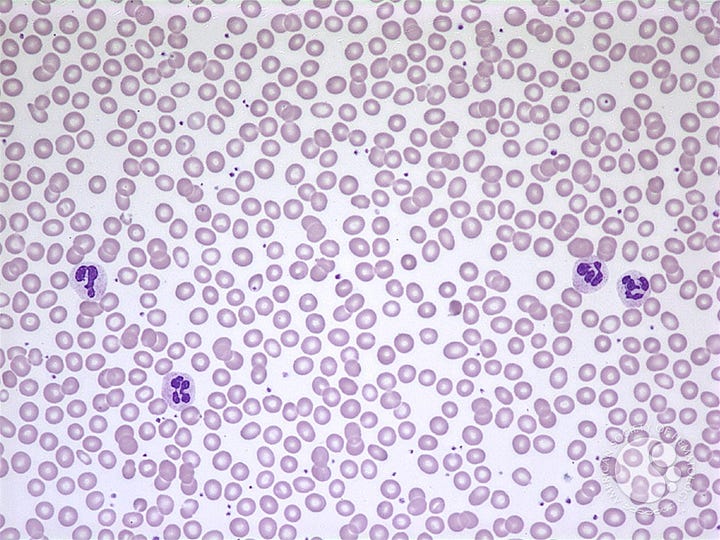
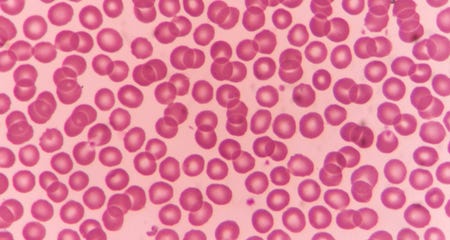
B. Damaged Blood
Unhealthy blood is marked by notable cellular deformities and disruptions in the natural process of apoptosis. Microscopic examination reveals irregularities in red blood cell shapes, abnormal white blood cell counts, and unpredictable platelet behavior. Apoptosis, a programmed form of cell death, is a critical process for maintaining homeostasis; but an imbalance can lead to either excessive cell death or the survival of dysfunctional cells. These cellular abnormalities serve as clear indicators of underlying issues.
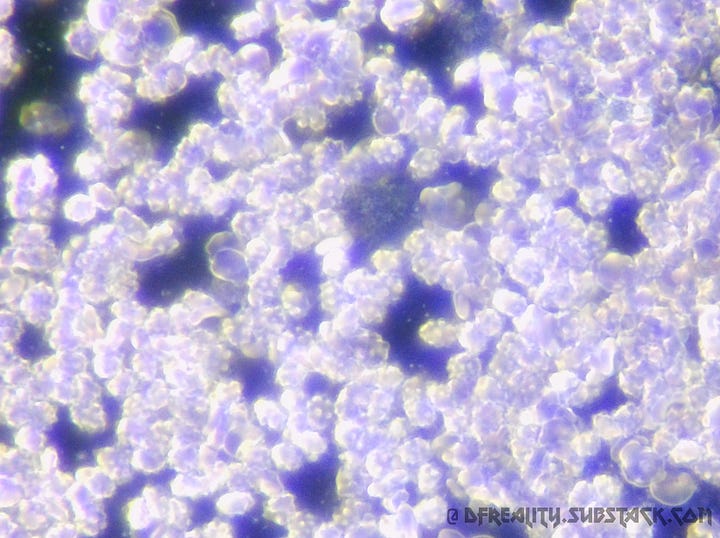





C. Quantum Dots & Hydrogel Ribbons
Quantum dots are nanoscale semiconductor particles with remarkable optical and electronic properties.
Quantum dots, synthesized within hydrogel nanoislands, exhibit unique characteristics due to their size and composition. Their size-dependent properties result from quantum confinement effects, allowing them to emit light of precise colors when stimulated, making them incredibly valuable in applications like biological labeling, imaging, and sensing.
The incorporation of quantum dots within hydrogel nanoislands enhances their versatility, enabling fine-tuned control of their behavior and facilitating a wide range of applications, particularly in the fields of nanotechnology and biomedicine.
Note the different sizes and colors in the samples below.
— Quantum dot color and sizes. Source: Benoit Dubertret.
Hydrogel nanoislands – or Quantum Nurseries – are intricately designed structures consisting of hydrogel materials. When exposed to oxygen, quantum dots of varying sizes will synthesize on the surface of these materials.
In essence, hydrogel nanoislands create a specialized quantum hatchery within the hydrogel structure, allowing for precise control and manipulation of quantum phenomena.
Note the segregated areas of orbs within the nanoisland itself, a conspicuous pattern seen quite frequently in hydrogel. Note also the structures and ribbons that appear to be assembled within the hydrogel itself.
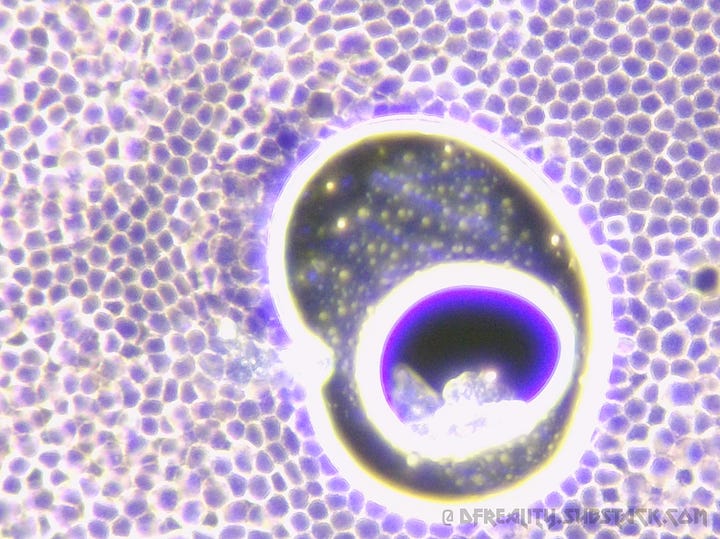
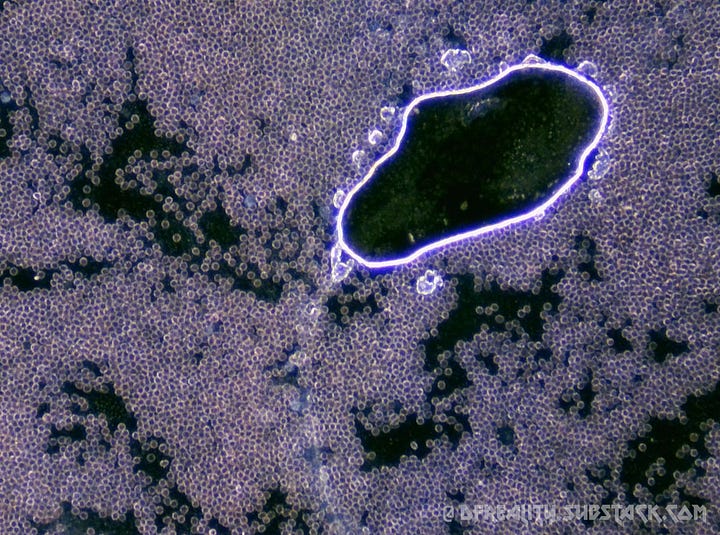
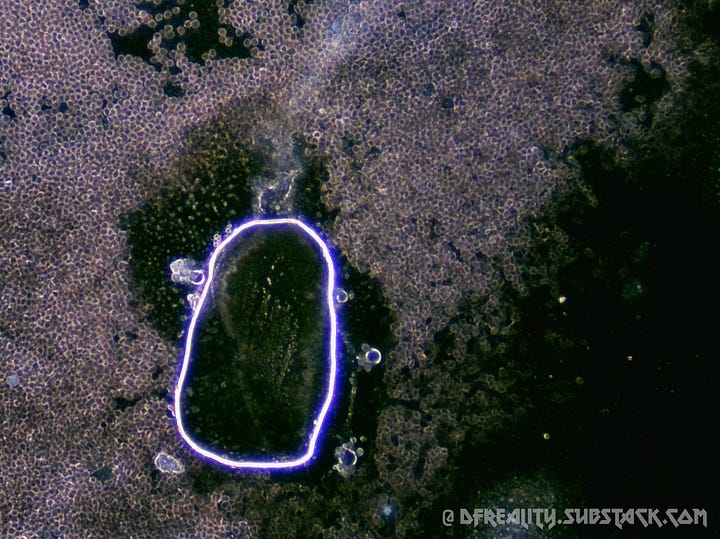
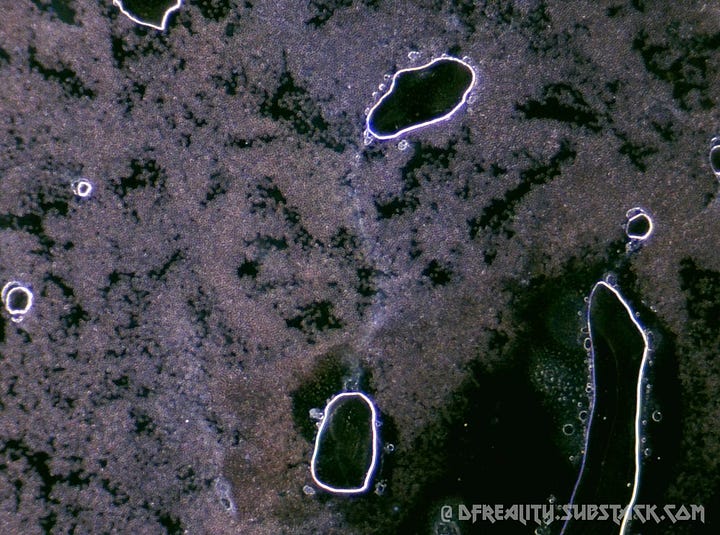










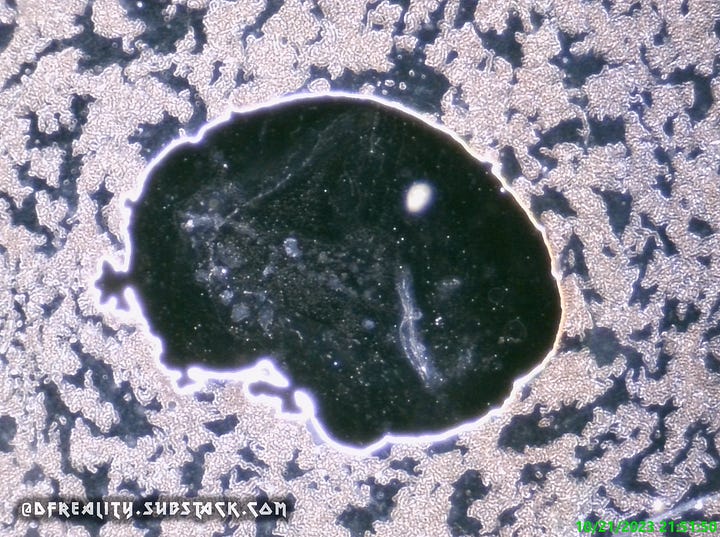









D. Hydrogel Chips
Hydrogel chips are miniature, thin devices or platforms incorporating hydrogel materials.
These chips are engineered to manipulate, analyze, or interact with biological samples, such as cells or molecules, while benefiting from the unique properties of hydrogels, like their high water content, biocompatibility, and tunable responsiveness.
Hydrogel chips find applications in various fields, particularly in biosensing, drug delivery, tissue engineering, and diagnostics, where their dimensions enable precise interactions with biological systems.
Quantum Dots can be seen within these structures, a tell tale sign of their origin. Note the rectangular shape of these objects, as well as the segmented sections of the chip itself.
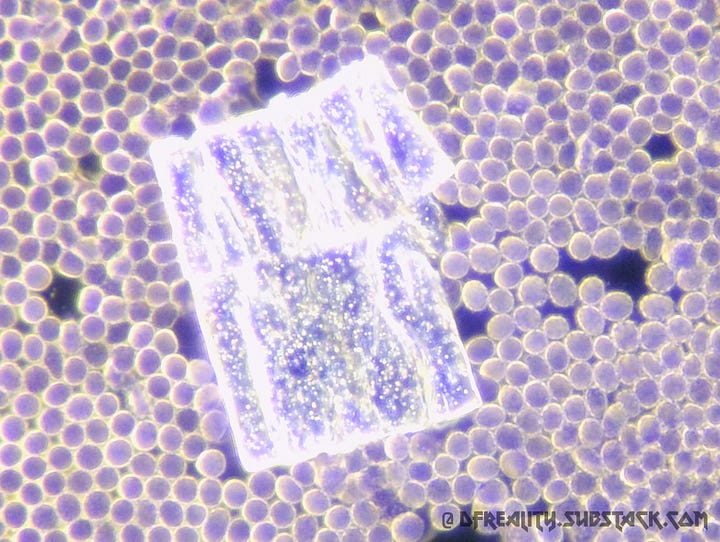
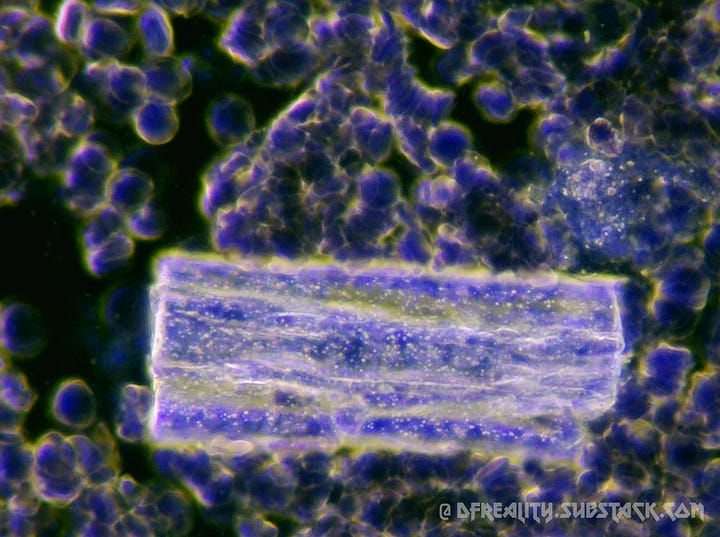
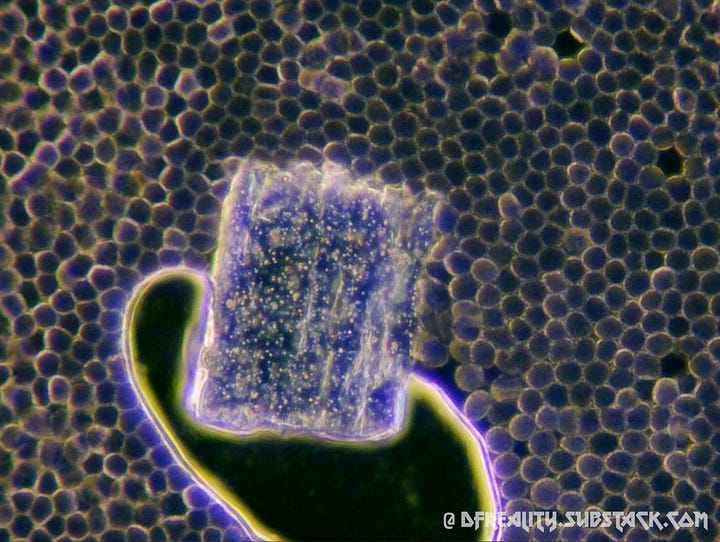
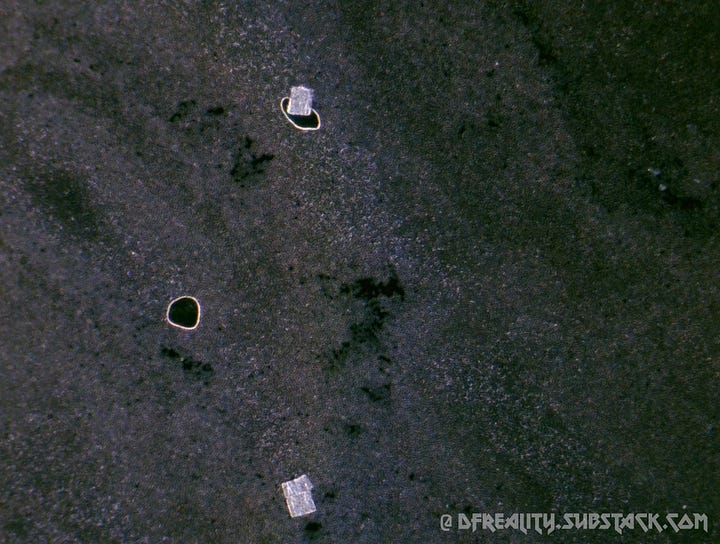
E. Hydrogel Ribbons
Hydrogel ribbons are thin, elongated structures made of hydrogel materials with a ribbon-like morphology.
They are commonly engineered for various applications in biomedicine, tissue engineering, drug delivery, and diagnostics, capitalizing on their capacity to encapsulate and release substances, mimic natural tissues, and interact with biological systems at the nanoscale.
Quantum Dots can be seen within these structures, a tell tale sign of their origin. These ribbons are found quite often in the vicinity of quantum nurseries. Note the cellular disfigurement in the area around these structures.
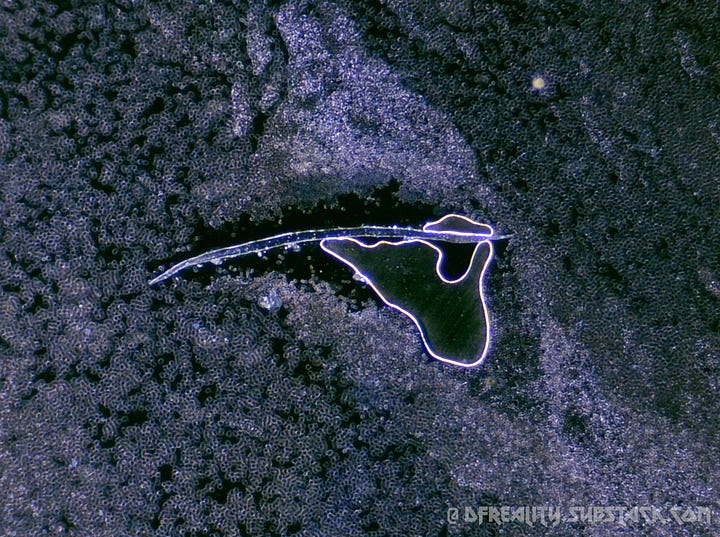

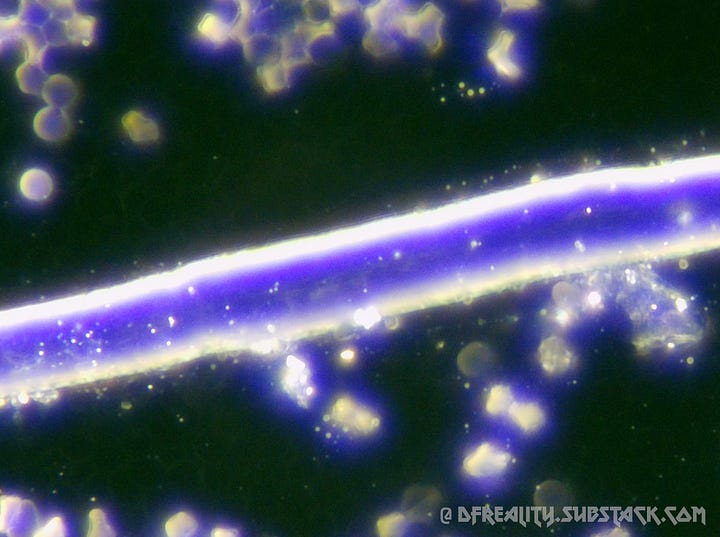
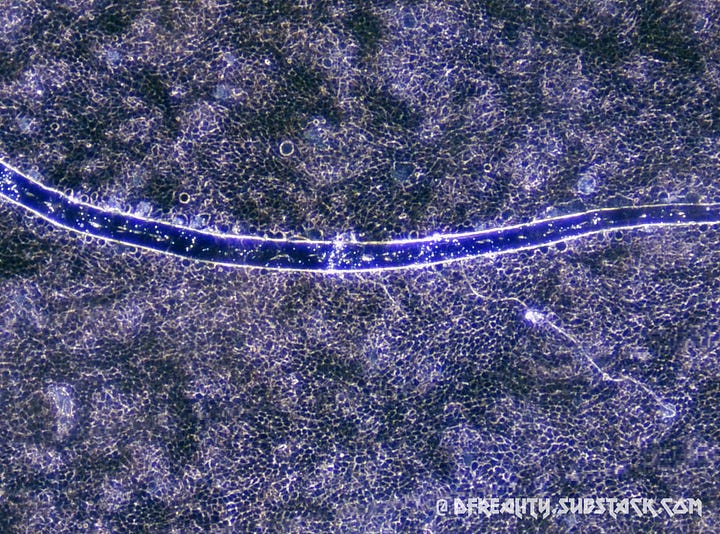






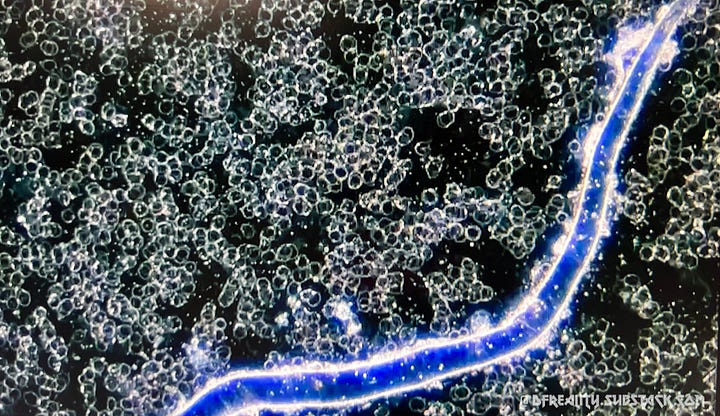
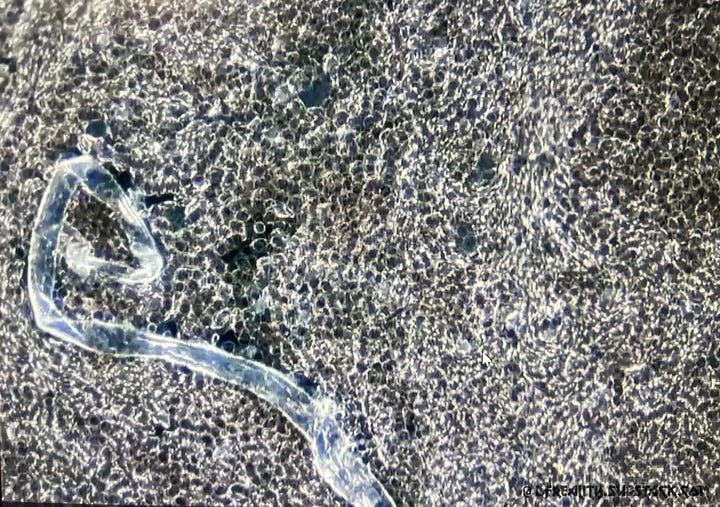

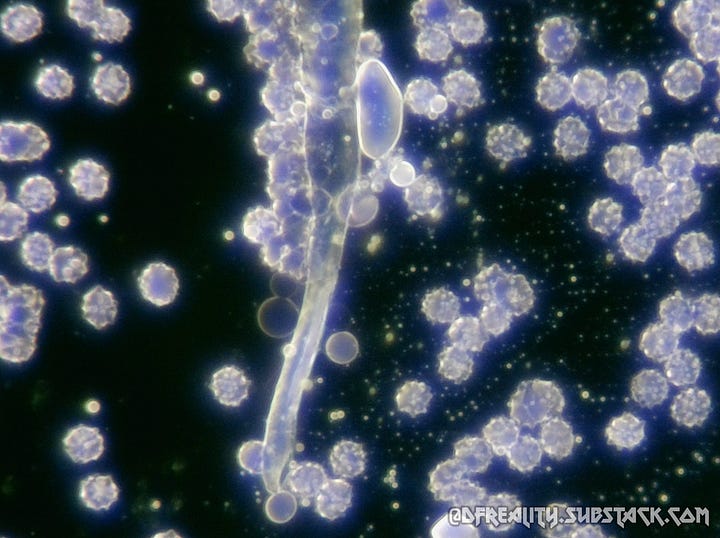








F. Hydrogel Structures
Hydrogel structures are exceptionally small configurations or assemblies composed of hydrogel materials.
Hydrogel structures have applications in various domains, particularly in biotechnology and medicine, where their high water content, biocompatibility, and tunable responsiveness make them valuable for drug delivery, tissue engineering, diagnostics, and other biomedical applications.
These structures are crucial components of cutting-edge technologies designed to interact with and manipulate biological systems at the nanoscale.
Quantum Dots can often be seen within these structures, a tell tale sign of their origin. Their irregular shape, unique physical characteristics, and proximity to quantum nurseries are key factors in identifying these objects. Note the extreme cellular disfigurement in the vicinity of these structures.







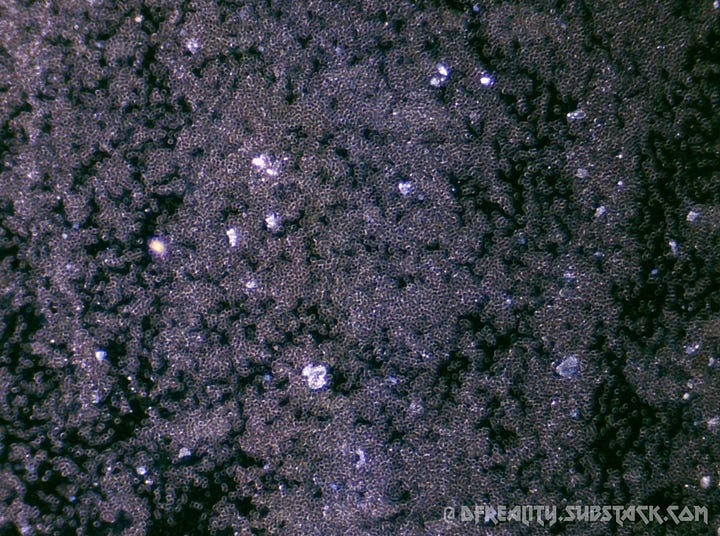


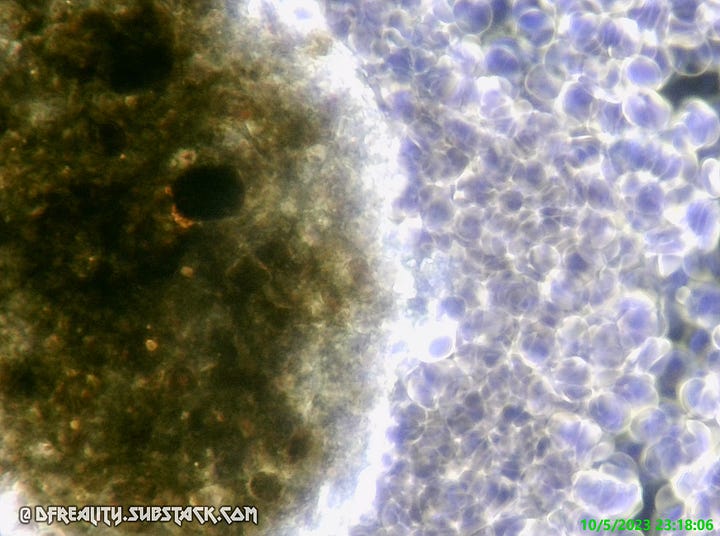









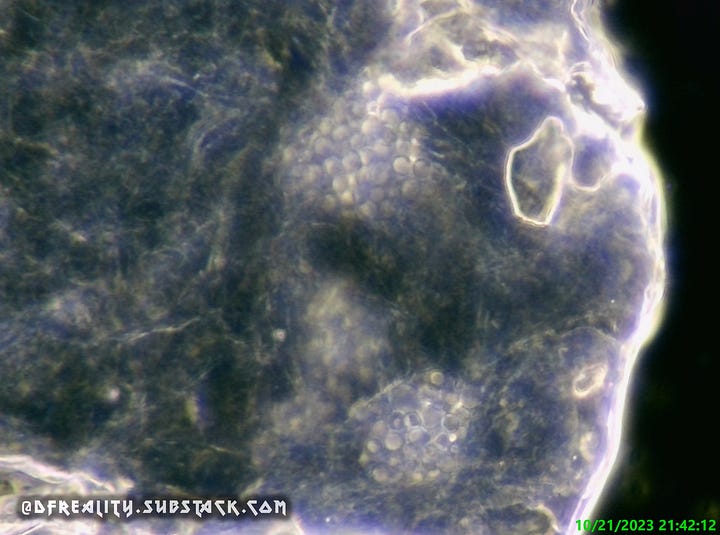







III - Conclusions
Jabbed or unjabbed, male or female, no matter the age, we continue to find a staggering degree of uniformity between the distinct classes of nanotech found in our patients. While there are occasionally unique manifestations of this material (such as the large yellow structure seen in Live Blood Analysis: 40+ M, Triple Jabbed (Pfizer)), the classes tend to express themselves in distinct, identifiable patterns. The promising response that we have seen from the natural compounds identified within The Expurgo Protocol serves as further proof that these objects are in fact what we have hypothesized: an elegant, sophisticated, biosynthetic nanoweapons platform. The scale of the assault we face is admittedly hard to fathom, even for one who has spent the better part of the last 4 years poring through the literature on this subject.
It bears continual repeating: the samples seen above can not be mistaken for bacteria, cysts, dust, cloth fibers, microplastics, natural crystals, parasites, or any other previously known material — either natural or synthetic — capable of infecting human blood.
For far too many within the "medical freedom movement" — despite the mountains of evidence, despite the scientific studies compiled by hundreds of researchers across the world — they will continue to dismiss this reality as an impossibility. Never mind that the inventors of Quantum Dots are winning Nobel prizes for their decades old discovery. Disregard that nanotechnology is already being used in medicine, with even more applications on the way.
These inconvenient facts will never get in the way of the narratives these shills are paid to peddle.
Please continue to spread this vital information to as many people as you can, and be sure to subscribe to keep up to date on our latest findings and research. All of the information and articles on this publication will remain free of charge in perpetuity.
“The public cannot comprehend this weapon, and therefore cannot believe that they are being attacked and subdued by a weapon.
The public might instinctively feel that something is wrong, but that is because of the technical nature of the silent weapon, they cannot express their feeling in a rational way, or handle the problem with intelligence. Therefore, they do not know how to cry for help, and do not know how to associate with others to defend themselves against it.”
— Silent Weapons for Quiet Wars, Operations Research Technical Manual TM-SW7905.1











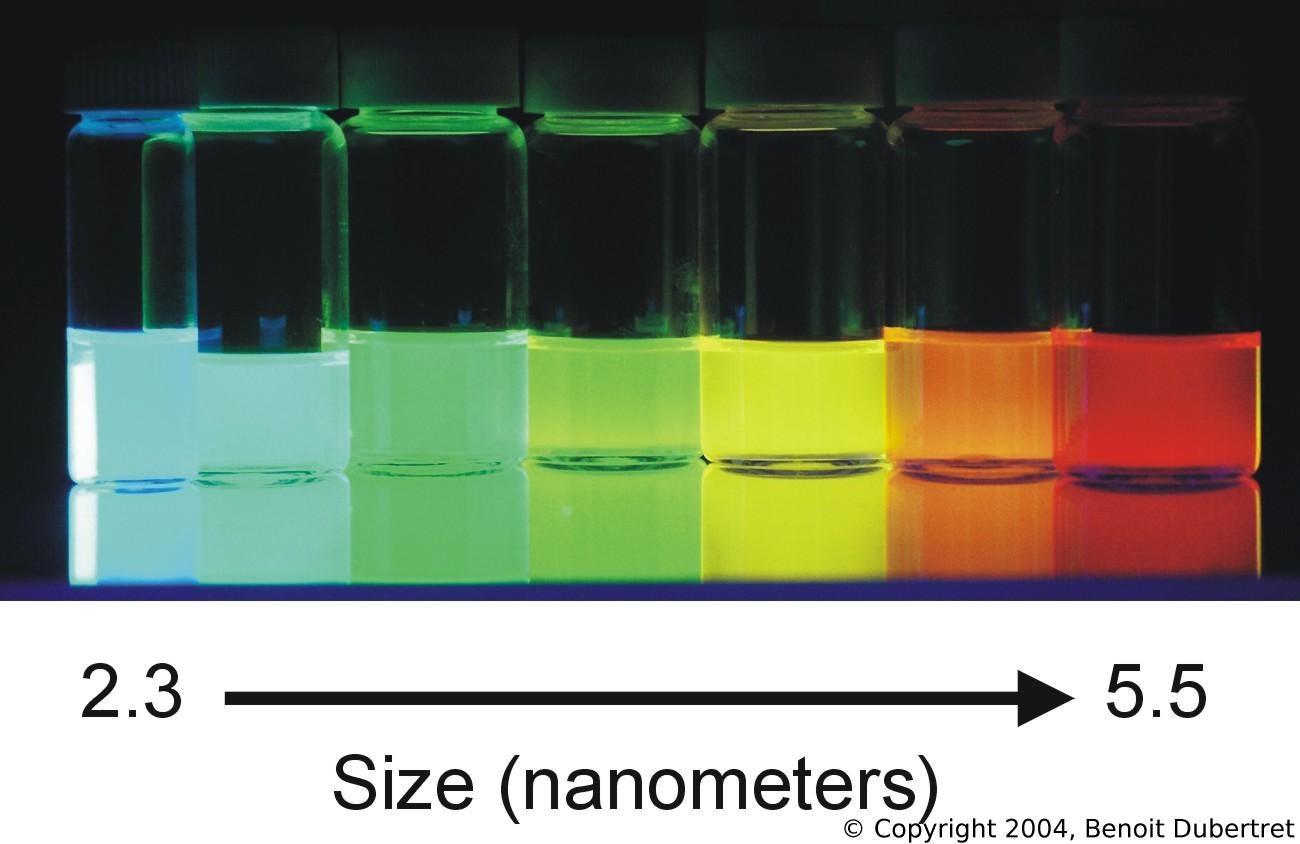
Great works, Thanks.
Scipio, I need to resort to your tremendous knowledge on the subject of cleaning the blood; Yesterday 2 young men were to visit my house (realtors), and did not show up. The young team (30ish), wound up instead in a hospital. The night before one of them had a siezure while driving his car and was in an accident. In the hospital, he had 2 more siezures. This had never happened to him before. His team partner made the obvious choice to skip our appointment and be with his friend in the hospital. He did get in touch with me and told me what happened. I subtly wondered to him if it had anything to do with 'shots' in the last 3 years, to which he 'liked' the comment and tacitly agreed. I have yet to hear how the afflicted fellow is doing, but I'd like to turn them onto information about cleaning his blood - when he is released from the hospital. How would you steer him? I can think of many things, but prefer to see what you would recommend. Thank you for any reply.